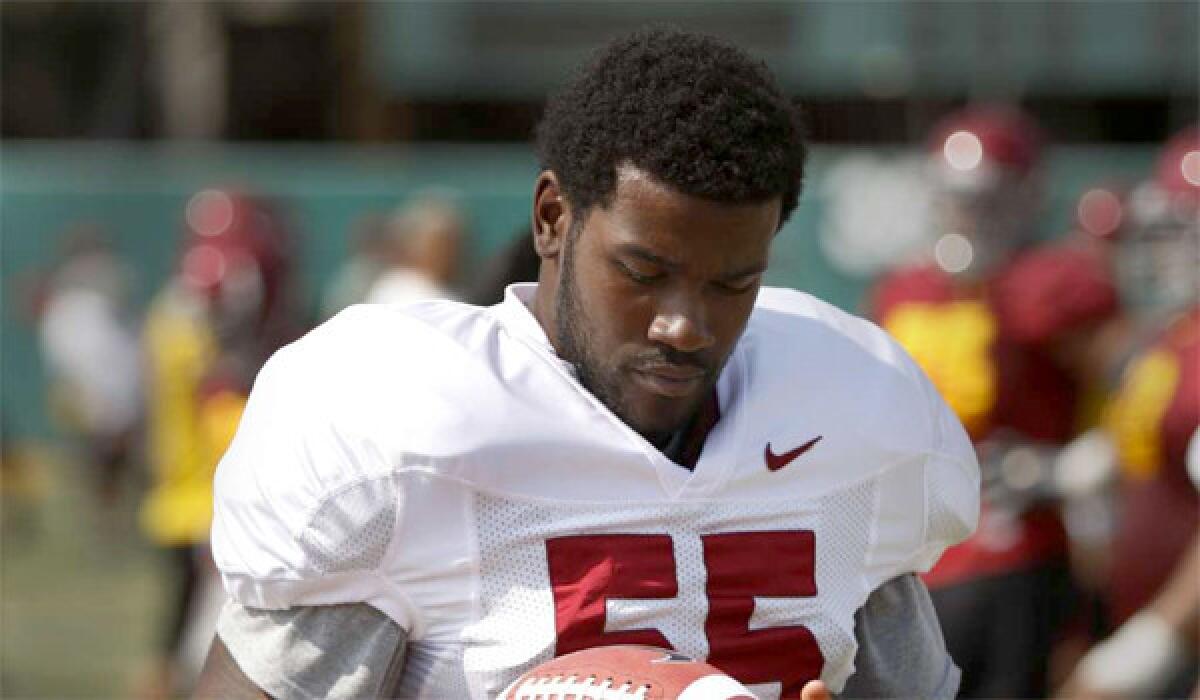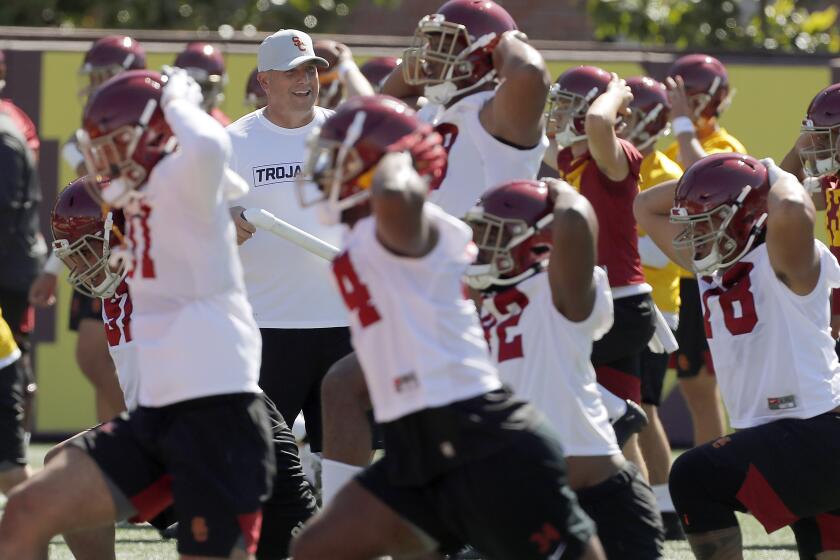Court upholds dismissal of lawsuit by ex-USC football player against NCAA, Pac-12

- Share via
An appellate court has upheld the dismissal of a lawsuit by former USC football player Lamar Dawson arguing the Pac-12 and NCAA are “joint employers” of college football players.
The opinion filed Monday in the U.S. 9th Circuit Court of Appeals noted that the Pac-12 and NCAA didn’t provide Dawson with a scholarship or have the power to hire or fire him.
“In sum, the district court correctly held that the NCAA and the Pac-12 were not Dawson’s employers,” Chief Judge Sidney R. Thomas wrote in the opinion on behalf of the three-judge panel. “Within the analytical framework established by the Supreme Court, the NCAA and Pac-12 are regulatory bodies, not employers of student-athletes under the [Fair Labor Standards Act].”
Dawson, who played linebacker from USC from 2011 to 2015, filed the class-action lawsuit against the Pac-12 and NCAA in September 2016. He alleged the organizations violated state and federal law by not paying football players minimum wage or overtime.
U.S. District Judge Richard Seeborg dismissed the case in April 2017, finding no legal basis to classify college football players as employees under the Fair Labor Standards Act. Dawson appealed the decision a month later.
There are still concerns surrounding the USC football secondary after Saturday’s scrimmage.
USC wasn’t a defendant in Dawson’s lawsuit — and Thomas pointed out in the appellate court opinion that it didn’t determine the broader question of whether Dawson was a school employee.
“In this putative class action case, Dawson does not allege he was an employee of USC, so the pure question of employment is not before us, and we need not consider whether he had employment status as a football player, nor whether USC was an employer,” Thomas wrote. “That question is left, if at all, for another day.”
Dawson started three seasons for USC before a shoulder injury ended his senior year.
His lawsuit sought unpaid overtime and wages, interest and a variety of unspecified damages.
More to Read
Fight on! Are you a true Trojans fan?
Get our Times of Troy newsletter for USC insights, news and much more.
You may occasionally receive promotional content from the Los Angeles Times.








